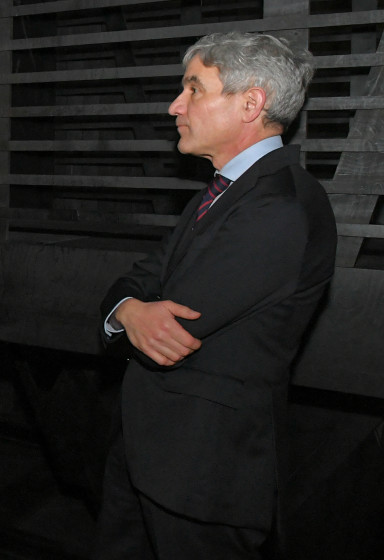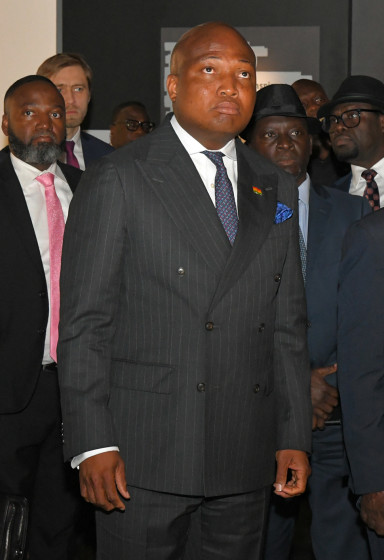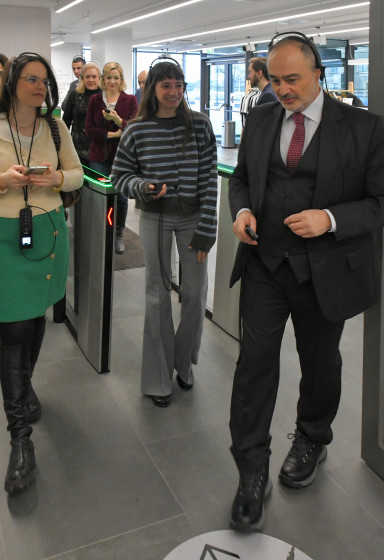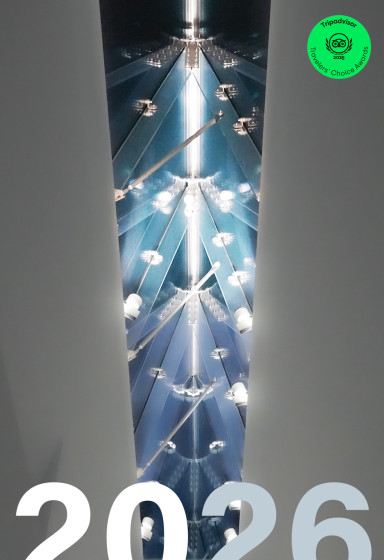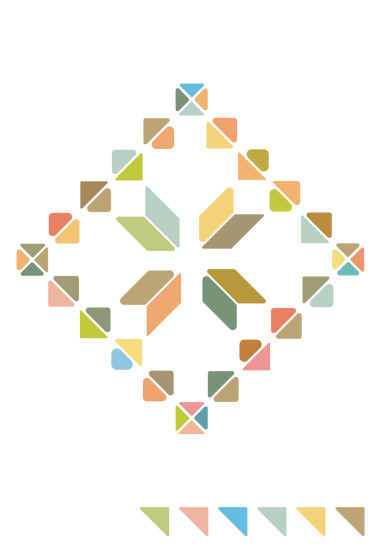Donate to Museum
Each donation helps to ensure the Museum's activities, allowing it to function and provide information for people from all over the world.
The Museum is grateful to each donor and invites everyone to contribute.
Latvia’s Occupation Museum: Why the Next 25 Years are More Important than the Last
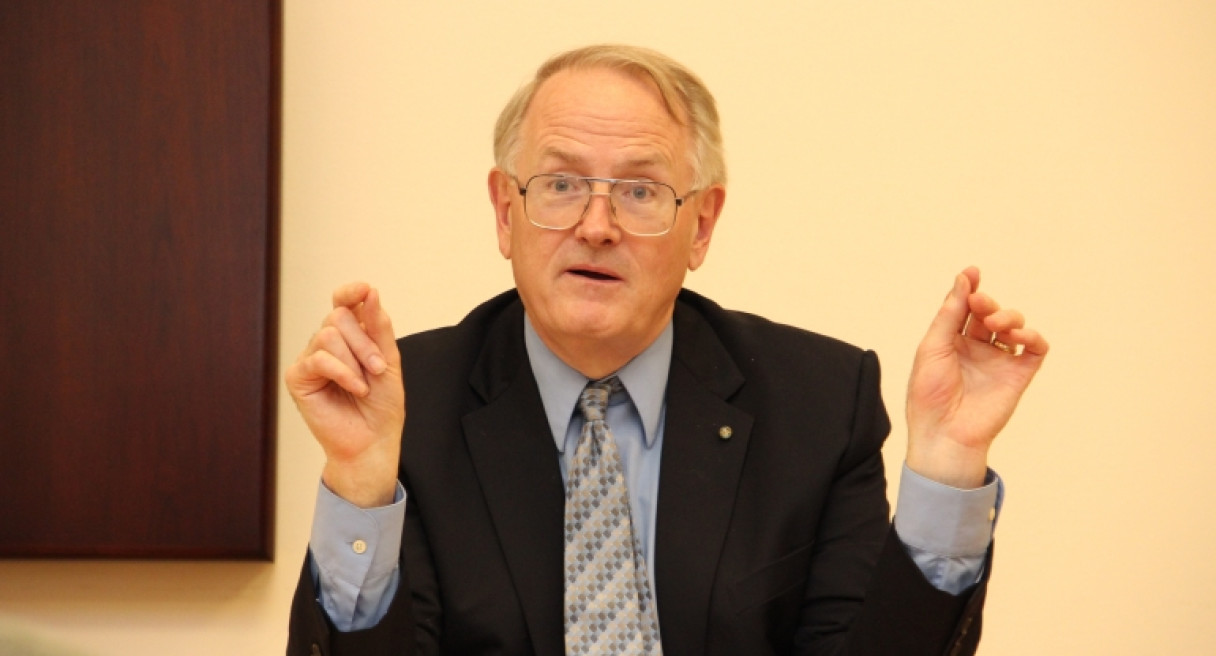
On 27 July, the museum celebrated its 25 year anniversary. During the celebrations Paul A. Goble made the following speech.
When the Latvian Occupation Museum was opened 25 years ago, only the very youngest people in Latvia did not remember the occupation. The vast majority of the population could recall on the basis of their own bitter experience what occupation meant. They had watched relatives and friends suffer, be deported, and even killed. They did not need to be told what the occupation meant: they needed only to be reminded about those aspects of that half-century-long horror that might not have touched them directly or that they could have forgotten.
Those were important tasks, and the Occupation Museum has played a key role in performing them. No other institution in Latvia has done as much to ensure that Latvians and their friends will remember what happened and why, and as a result, no other institution has done so much to ensure that the horrors of the occupation will never be forgotten, almost certainly the chief guarantee that they will not be repeated. I am thus thrilled to have the opportunity this 25th anniversary to congratulate all those who have made the Occupation Museum such a success.
But in doing so, I must remind you that the most important years in the life of the Occupation Museum and of the Latvian people are not the last 25 but the next. Today, with the passing of time, the share of those with direct knowledge of the occupation is smaller than ever before. Those who were 21 when the occupation ended in 1991 are now almost 50, and consequently, only about one in four have the kind of direct memories of the occupation that nearly everyone had when the museum opened its doors.
In many ways, this is a good thing. Indeed, looking into the future, we know there will be a time when no one in Latvia will remain with direct, personal memories of the occupation. And all of us hope that Latvia and her people will never be subject to occupation again. Many now say that it is therefore time to put the horrors of those times behind us, to focus on the present and the future, and even to change the message of the museum from one of documenting what the occupation was to one about the triumph of the Latvian people and their friends over it. While no one should ever minimize that triumph, there are three compelling reasons why the Occupation Museum must never change its mission and why in fact it and its original intention are more important now than they ever were before.
The first of these reasons is the one I have alluded to already. With each passing year, the share of the Latvian population with direct experience and memories of the occupation is declining. Soon there will be no one left. That means that the museum can and must keep these memories alive. If in 1993, the museum was responsible for organizing Latvian memories about the occupation; now it is responsible for ensuring that Latvians and the world do not forget. That is no easy task at a time when many in Latvia and especially abroad encourage people to look forward rather than backward and to overcome the past by forgetting it. But such attitudes must be resisted because they will only grow in strength and undermine among those who are too young to remember what the occupation meant. Otherwise, Latvians will forget one of the national experiences that makes them who they are and lose the guideposts they need to move forward. That is the Occupation Museum’s task.
The second reason is if anything more compelling. With the passage of time, all people inevitably change the past. Often they sugar coat events and tell themselves and others, who often are only too ready to hear that, that the events of the past weren’t as important or as horrific as “the old people” say. Or alternatively, they develop a narrative in which the past is rewritten to be even more bleak than it was, with all the attention going to the victims and none to the heroic efforts of Latvian patriots to resist. The Occupation Museum both by its exhibits and by its outreach efforts to Latvian schools and society can help counter these twin dangers. The history of the occupation is and will always be not only the history of Soviet Russian oppression and destruction but also the story of Latvians, young and old, well-known and obscure, who kept the Latvian Dream alive. If the latter is forgotten, that will be even more horrific than if the horrors are forgotten.
And the third reason is simple: There is no one else to do this job. Ever fewer people and institutions are talking about the occupation. Ever fewer books and articles recount what happened and why. And ever fewer people who visit Latvia have anywhere else to turn to learn about the occupation. The Occupation Museum stands alone – and over the coming decades, it will stand even more alone. That is not a reason for changing its mission or giving up: Instead, it is a reason for doubling down and ensuring that its original mission remains firm: to remember and remind what happened and why, to recount the crimes the Soviets visited upon Latvia, and to celebrate the remarkable resistance and resilience of the Latvian people.
Consequently, on this 25th anniversary of an institution that has done so much already, I as a friend of Latvia and a friend of the museum say take a moment, celebrate the remarkable work you have done, but then come back and remember that your most difficult and most important tasks are ahead. For your freedom and ours and so that the horrific events the Occupation Museum recounts will remain in the minds of Latvians forever, thus inoculating them against any possibility that they will ever be repeated.
